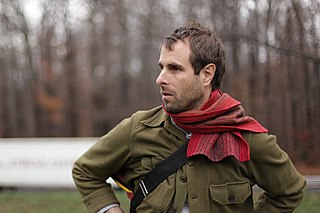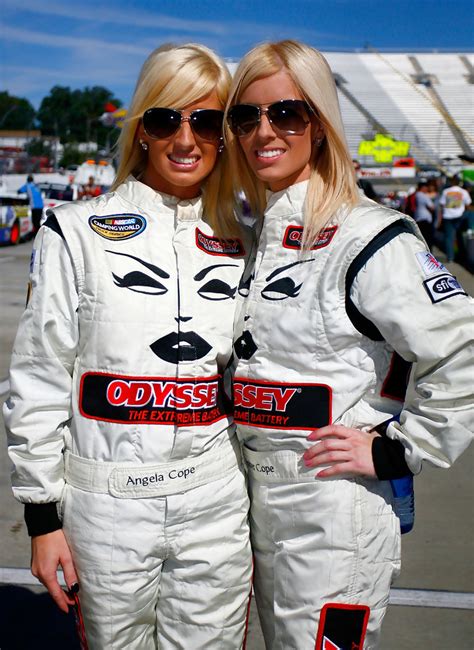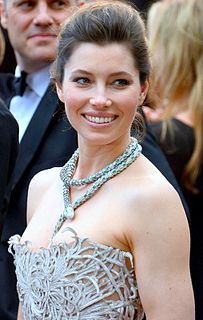A Quote by Chris Abani
My grand uncle was a traditional priest, and he would always say to me as a kid, 'We stand in our own light,' which essentially for him meant we were entirely responsible for a lot of what happens to us and for the ways in which our lives play out.
Related Quotes
The media we surround ourselves with allows us to manufacture our own experience every day, which is a perception of the world that is our own invention entirely, whether it is on social media or what we choose to absorb. This was very different when I was a kid, like generations before us we were exposed to things that were not entirely on our terms. We had to wrestle with and find the relationship with the world around you. It was literal experience, unlike the form of protracted psychic masturbation that is the digital world we live in.
That part of Christ's nature which was profoundly human helps us to understand him and love him and to pursue his Passion as though it were our own. If he had not within him this warm human element, he would never be able to touch our hearts with such assurance and tenderness; he would not be able to become a model for our lives.
When we cultivate mystical awareness or transcendent identity--which is a natural outgrowth of meditation and other practices--what happens is that we begin to take a witness position on our own lives, and that includes our minds. We break the illusion that we think our own thoughts, which is not always the case. Some ideas just arrive in our heads.
At the center of our being is a point of nothingness which is untouched by illusion, a point of pure truth, a point or spark which belongs entirely to God, which is never at our disposal, from which God disposes of our life, which is inaccessable to the fantasies of our own mind or the brutalities of our own will. This little point of nothingness and of absolute poverty is the pure glory of God in us.
Universities were not meant entirely, or even chiefly, as stepping-stones to an examination, but that there is something else which universities can teach and ought to teach-nay, which I feel quite sure they were originally meant to teach-something that may not have a marketable value before a Board of Examiners, but which has a permanent value for the whole of our life, and that is a real interest in our work, and, more than that, a love of our work, and, more than that, a true joy and happiness in our work.
In order to find God in ourselves, we must stop looking at ourselves, stop checking and verifying ourselves in the mirror of our own futility, and be content to be in Him and to do whatever He wills, according to our limitations, judging our acts not in the light of our own illusions, but in the light of His reality which is all around us in the things and people we live with.
Jesus is challenging that when addressing "who is your neighbor" and he has a lot of hard things to say about family, "unless you hate your own family you are not going to be a disciple." He is challenging the limits of our compassion and our love as if someone's kid suffers it should be as devastating to us as if it were our own kid. That is what the early church said.
In a world in which we are exposed to more information, more options, more philosophies, more perspectives than ever before, in which we must choose the values by which we will live (rather than unquestioningly follow some tradition for no better reason than that our own parents did), we need to be willing to stand on our own judgment and trust our own intelligence-to look at the world through our own eyes-to chart our course and think through how to achieve the future we want, to commit ourselves to continuous questioning and learning-to be, in a word, self-responsible.
We are not meant to stay wounded. We are supposed to move through our tragedies and challenges and to help each other move through the many painful episodes of our lives. By remaining stuck in the power of our wounds, we block our own transformation. We overlook the greater gifts inherent in our wounds - the strength to overcome them and the lessons that we are meant to receive through them. Wounds are the means through which we enter the hearts of other people. They are meant to teach us to become compassionate and wise.
What happens is most of us are so busy in our lives with our families and our vocation which we should be, but we tend not to look at what I call these parallel interests, and they develop along the way. And sometimes one can say, well, you know, why should I grow my own garden and spend all that time when I can buy carrots cheaper at the supermarket and just put aside that kind of an interest.


































